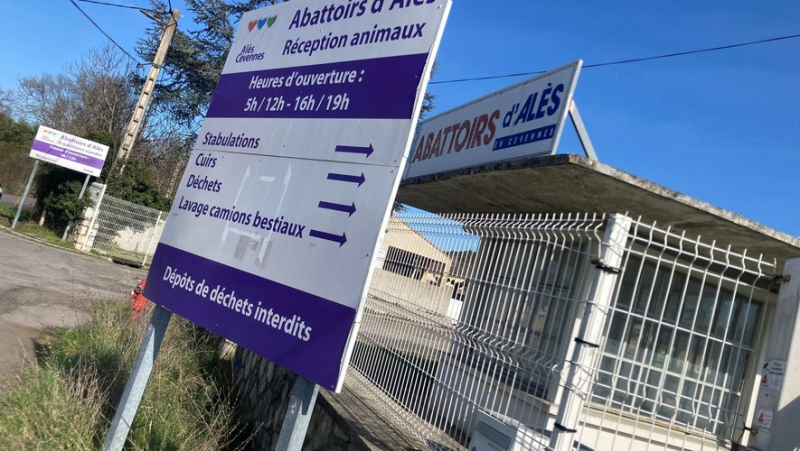The municipal slaughterhouse of Alès finds itself in cessation of payments and will refer it to the commercial court

L’abattoir d’Alès se retrouve aujourd’hui au pied du mur. MIDI LIBRE – ALEXIS BETHUNE
The Cévennes establishment should file for bankruptcy this Friday, March 8, at the Nîmes commercial court.
The news broke this Thursday, March 7, in the morning, during the “Assises de la proximity”, and it’s not a good sign. Christophe Rivenq, the first deputy mayor of Alès, and also president of the Agglomeration, announced that the Alès slaughterhouse must file for bankruptcy, this Friday, March 8, with the Nîmes commercial court. The structure, today managed and operated by the Mixed Economy Company of the Alès-Cévennes Abattoir (Semaac), as part of a public service concession, is visibly on the verge of breakdown. It reports a cessation of payments of the order of €160,000, the result, according to the Alésien elected official, of the debts of Alès meats, of the drop in the tonnage of ;rsquo;slaughter and "unfulfilled commitments". Explaining that Semaac has found itself in cessation of payments "for a week", he deplores that the'"we are reaching the end of everything that was legal". Indeed, the law requires the establishment to report its situation within 45 days…
Max Roustan, the mayor of Alès, had warned…
For the record, in mid-December, in the municipal council, knowing that the liquidated company Alès meats had been taken over by Sodial, an Orange company, a six-month respite, therefore running until June, had been given to the slaughterhouse, the City even donating 100,000 € rent to allow Semaac to hold on while waiting for the buyer to get his bearings. But Max Roustan, the first magistrate, was then very clear: "We sacrifice ourselves once again […] If we don't succeed , we will close…" Over the last twenty years, the municipality has invested nearly 12 M€ on the table to ensure its sustainability.
Judicial recovery or liquidation
From now on, the commercial court will look into the case of the municipal slaughterhouse during a hearing of collective proceedings, certainly in the middle of next week. At the end of which, either it will benefit from a legal recovery procedure, or it will be forced to close its doors. For him to get out of it, "the solution is simple", says Christophe Rivenq: bring volume of ;slaughter.
A "political will"
Currently, this volume is 3,500 tonnes per year and 400 more are needed for the establishment to be viable. "This represents around 40 tonnes per month, or a few animals. It’s nothing at all", despairs Alès’s first deputy. He then speaks of "political will" to achieve this and turns his gaze towards the Chamber of Agriculture. "We're alerting, we're alerting! And we find ourselves in a situation which is dramatic", he continues, confident that the rents are no longer paid and that there is no longer a director. However, he is pleased that "the latest report from the departmental directorate for population protection (DDPP) has never been so good", but it seems, at the moment, that the Alès slaughterhouse has never recovered from the video that L214 broadcast, in October 2015.
The reaction of Minister Dominique Faure
Questioned, this Thursday, March 7, on this subject, the repercussions of which would be "damaging for territorial planning", Dominique Faure, the Minister for Ecological Transition and Territorial Cohesion, indicated that’"we need to bring all partners around the table". Which has already been done many times, alongside unanimous support from local elected officials of all sides! Later, she said that she will "talk about the subject when (she sees) the President" . And to add that "the subject of short circuits is fundamental. We saved the Auch slaughterhouse by requiring the canteens of Toulouse to only consume meat from Auch. This subject can be dealt with by requiring the purchase of meat from the Alès slaughterhouse. already what is happening here, within the framework of the Territorial Food Plan (PAT), supported by Alès Agglomération. To be continued, therefore.
I subscribe to read more




